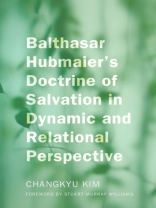This book aims to explore the meaning of salvation in Balthasar Hubmaier’s theology. Previous research has tended to explain and evaluate his theology by locating his identity among contemporary Anabaptists. Moreover, Hubmaier’s theology has been variously labeled as Catholic Anabaptist, Magisterial Anabaptist, or as a bridge between the Radical and Magisterial branches of the Reformation. These approaches to Hubmaier’s theology essentially depend on a static and transactional per...
Sobre o autor
Stuart Murray has a Ph.D. in Anabaptist hermeneutics from The Open University, under the auspices of the Whitefield Institute. He is chair of the Anabaptist Network si...
Compre este e-book e ganhe mais 1 GRÁTIS!
Língua Inglês ● Formato EPUB ● Páginas 226 ● ISBN 9781621898276 ● Tamanho do arquivo 2.9 MB ● Editora Wipf and Stock Publishers ● Cidade Eugene ● País US ● Publicado 2013 ● Carregável 24 meses ● Moeda EUR ● ID 6887301 ● Proteção contra cópia Adobe DRM
Requer um leitor de ebook capaz de DRM







![Capa do Brian Schrag & Julisa Rowe: Community Arts for God's Purposes [Chinese] 貼近神心意的社群藝術 Capa do Brian Schrag & Julisa Rowe: Community Arts for God's Purposes [Chinese] 貼近神心意的社群藝術](https://static.worldofdigitals.com/thumb_webp/740/9781645083740.webp)




